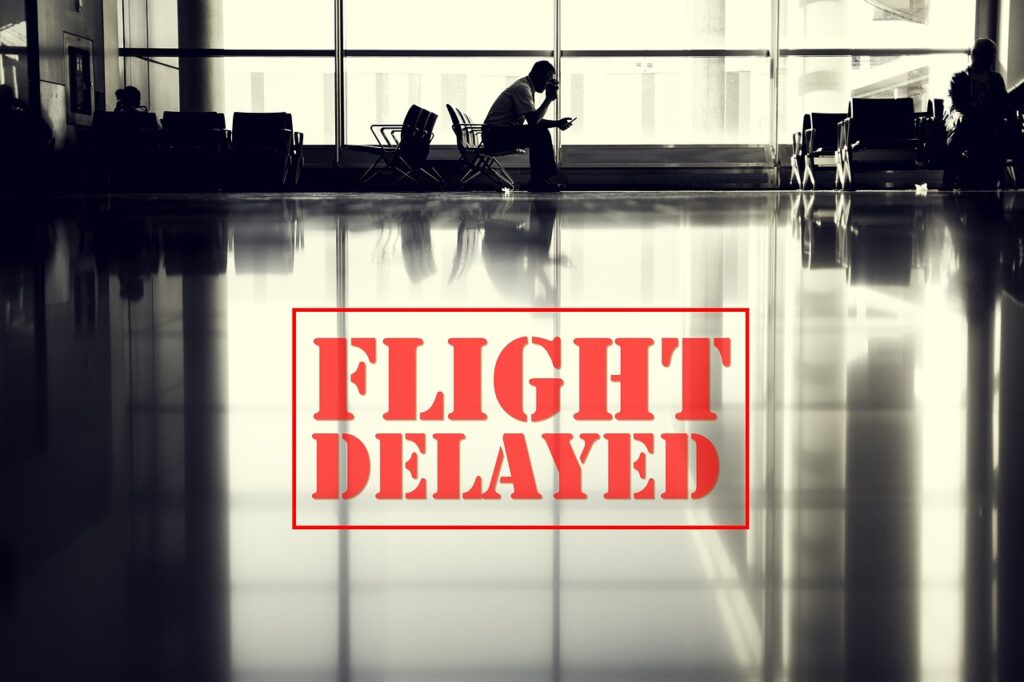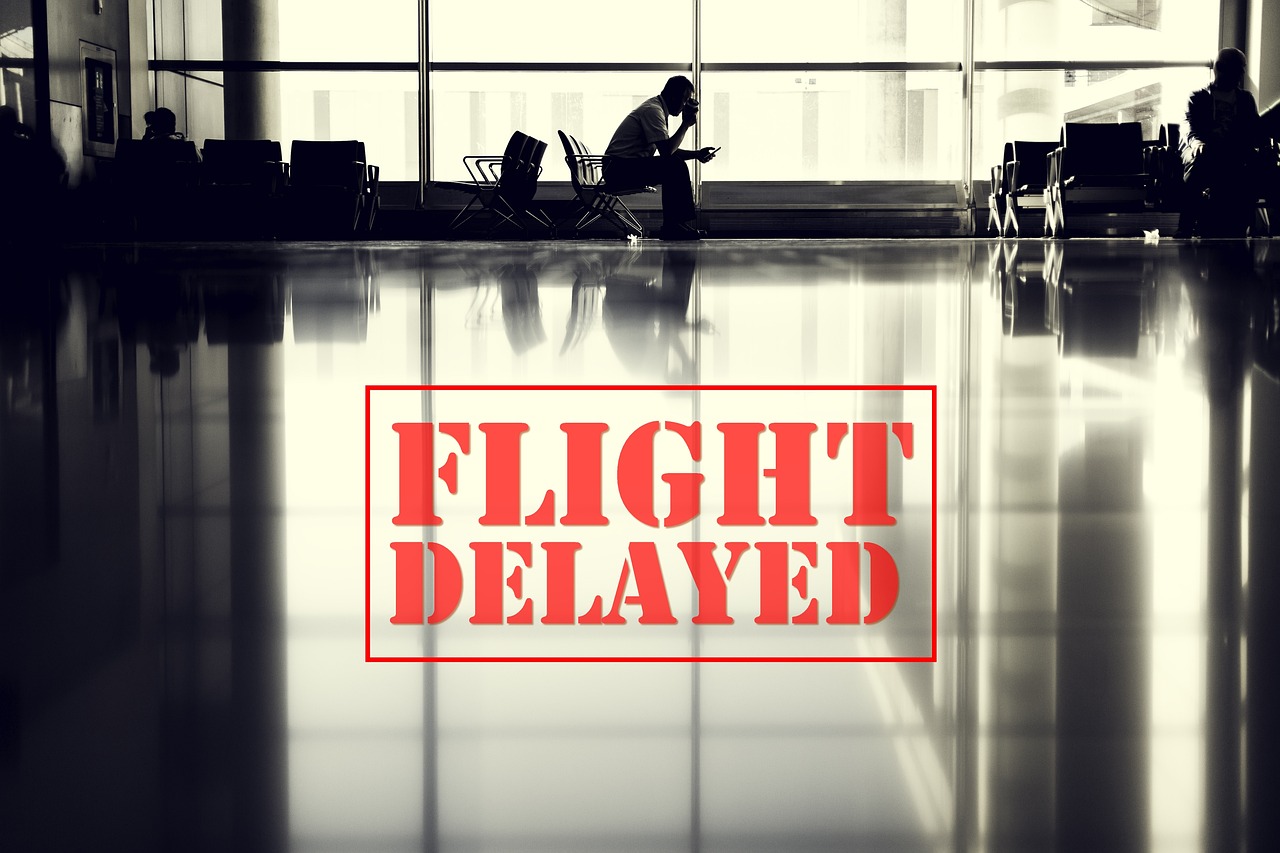The aviation industry plays a crucial role in the UK’s transportation network, connecting cities and regions across the country. Domestic flights are particularly vital for business travel, tourism, and personal travel, offering a quick and efficient alternative to other modes of transportation. However, flight cancellations are an inevitable part of air travel, affecting passengers’ plans and the overall efficiency of the transportation system. This article delves into the intricacies of domestic flight cancellations in the UK, exploring the causes, impacts, and potential solutions to mitigate their occurrence and effects.

Understanding Domestic Flight Cancellations
A flight cancellation occurs when an airline decides not to operate a scheduled flight. This decision can be made well in advance or at the last minute. The reasons for flight cancellations can be broadly categorized into operational, environmental, and regulatory factors.
Operational Factors
1. Technical Issues: Aircraft maintenance and safety are paramount. If an aircraft encounters technical problems that cannot be resolved in time, the flight may be canceled to ensure passenger safety. These issues can range from engine malfunctions to electrical system failures.
2. Crew Availability: Airlines must adhere to strict regulations regarding crew working hours to ensure safety. Unforeseen circumstances such as crew illness or scheduling conflicts can result in cancellations if a replacement crew is not available.
3. Airline Logistics: Operational inefficiencies, such as aircraft not being in the right location at the right time, can also lead to cancellations. This can happen due to delays in previous flights, leading to a cascading effect on subsequent schedules.
Environmental Factors
1. Weather Conditions: Adverse weather is a significant cause of flight cancellations. Fog, snow, thunderstorms, and high winds can make flying dangerous, leading airlines to cancel flights for safety reasons.
2. Natural Disasters: Events like volcanic eruptions or floods can disrupt air travel. The 2010 eruption of Eyjafjallajökull in Iceland, which led to widespread flight cancellations across Europe, is a notable example.
Regulatory Factors
1. Air Traffic Control Restrictions: Air traffic controllers manage the flow of aircraft in the skies. When there is congestion or a need to ensure safe distances between aircraft, they may impose restrictions that lead to flight cancellations.
2. Governmental Decisions: During the COVID-19 pandemic, travel restrictions and quarantine requirements led to numerous flight cancellations as governments sought to control the spread of the virus.
Impact of Domestic Flight Cancellations
The repercussions of flight cancellations extend beyond passenger inconvenience. They affect airlines, airports, and the broader economy.
Passenger Experience
1. Inconvenience: Cancellations disrupt travel plans, causing frustration and inconvenience. Passengers may miss important events, business meetings, or connecting flights.
2. Financial Loss: While passengers are entitled to compensation in some cases, they may still incur additional costs for accommodation, alternative transportation, or missed bookings.
3. Psychological Stress: The uncertainty and stress associated with cancellations can negatively impact passengers’ travel experience and overall well-being.
Airline Operations
1. Financial Costs: Airlines face significant costs due to cancellations, including passenger compensation, rebooking expenses, and lost revenue.
2. Reputation: Frequent cancellations can harm an airline’s reputation, leading to a loss of customer trust and loyalty.
3. Operational Disruption: Cancellations can cause a ripple effect, disrupting schedules and leading to further delays and cancellations.
Economic Impact
1. Tourism and Business: Flight cancellations can negatively affect tourism and business travel, leading to economic losses for cities and regions that rely on air travel.
2. Airport Operations: Airports face operational challenges when flights are canceled, including managing stranded passengers and reallocating resources.
Case Studies of Domestic Flight Cancellations
To better understand the dynamics of domestic flight cancellations in the UK, it’s helpful to look at specific case studies that highlight different causes and impacts.
Case Study 1: Technical Issues at London Heathrow
In December 2019, a technical issue with an aircraft operated by British Airways led to the cancellation of several domestic flights from London Heathrow to Manchester, Edinburgh, and Glasgow. The problem arose from a malfunction in the aircraft’s hydraulic system, which required immediate attention.
Impact:
- Passengers were rebooked on later flights, leading to delays and missed connections.
- The airline incurred costs for accommodations and meal vouchers for affected passengers.
- British Airways had to deploy additional staff to manage the situation, impacting its operations.
Case Study 2: Weather Disruptions at Edinburgh Airport
In January 2021, severe snowstorms in Scotland caused widespread disruptions at Edinburgh Airport. Several domestic flights to and from the airport were canceled due to poor visibility and unsafe runway conditions.
Impact:
- Passengers faced significant delays and had to make alternative travel arrangements.
- Airlines had to manage the logistics of rebooking passengers and arranging ground transportation.
- The airport had to deploy additional resources to clear snow and ensure safety.
Case Study 3: Air Traffic Control Strike
In July 2018, a strike by French air traffic controllers led to the cancellation of numerous flights across Europe, including several domestic flights within the UK. The strike caused significant airspace restrictions, leading airlines to cancel or reroute flights.
Impact:
- Passengers experienced widespread disruption, with many flights canceled or delayed.
- Airlines faced financial losses due to compensation claims and operational inefficiencies.
- The strike highlighted the vulnerability of the aviation industry to external labor disputes.
Mitigating the Impact of Flight Cancellations
While some flight cancellations are unavoidable, there are strategies and measures that can help mitigate their impact on passengers and the aviation industry.
Technological Advancements
1. Predictive Maintenance: Airlines can use advanced data analytics and predictive maintenance techniques to identify potential technical issues before they lead to cancellations. This proactive approach can improve aircraft reliability and reduce the likelihood of unexpected problems.
2. Improved Communication: Enhancing communication channels between airlines, airports, and passengers can help manage expectations and provide timely information. Mobile apps, real-time updates, and automated messaging systems can keep passengers informed about cancellations and alternative arrangements.
Operational Strategies
1. Flexible Scheduling: Airlines can implement more flexible scheduling practices to accommodate unforeseen disruptions. This includes having standby crews and aircraft ready to step in when needed.
2. Robust Contingency Plans: Developing comprehensive contingency plans for various scenarios, such as severe weather or technical failures, can help airlines respond more effectively to cancellations and minimize their impact.
Policy and Regulation
1. Passenger Rights: Strengthening passenger rights and compensation policies can ensure that affected travelers are adequately compensated and supported during cancellations. Clear and transparent policies can help build passenger trust and confidence.
2. Coordination and Collaboration: Enhanced coordination between airlines, airports, and regulatory authorities can improve the overall resilience of the aviation system. Joint initiatives and collaborative efforts can address common challenges and develop more robust solutions.
Environmental Considerations
1. Weather Forecasting: Advanced weather forecasting technologies can provide more accurate and timely information, allowing airlines to make better-informed decisions about flight operations.
2. Climate Adaptation: Developing strategies to adapt to changing climate conditions, such as more frequent extreme weather events, can help the aviation industry become more resilient to environmental disruptions.
Future Trends in Flight Cancellations
As the aviation industry evolves, several emerging trends and developments may influence the future landscape of domestic flight cancellations in the UK.
Technological Innovations
1. Artificial Intelligence (AI): AI and machine learning algorithms can analyze vast amounts of data to predict and prevent potential disruptions. These technologies can enhance decision-making processes and improve the efficiency of airline operations.
2. Electric and Hybrid Aircraft: The development and adoption of electric and hybrid aircraft may reduce the environmental impact of aviation and improve the reliability of flight operations. These technologies could lead to fewer cancellations due to technical issues or fuel supply problems.
Sustainable Aviation
1. Environmental Policies: As the industry moves towards more sustainable practices, new policies and regulations may impact flight operations. Airlines will need to adapt to changing requirements and invest in greener technologies and practices.
2. Carbon Offsetting: Initiatives to offset carbon emissions and reduce the environmental footprint of air travel may become more prevalent. Airlines may incorporate these practices into their operations, potentially influencing flight schedules and cancellations.
Passenger Experience
1. Enhanced Customer Service: The focus on improving the passenger experience will continue to drive innovations in customer service and support. Airlines will seek to provide more seamless and efficient solutions for managing cancellations and rebooking passengers.
2. Personalization: Personalized travel experiences, driven by data and technology, will become more common. Airlines may offer tailored solutions for affected passengers, such as customized rebooking options and proactive communication.
Conclusion

Domestic flight cancellations in the UK are a complex issue influenced by various operational, environmental, and regulatory factors. While some cancellations are unavoidable, airlines and regulatory authorities can take proactive measures to mitigate their impact on passengers and the aviation industry.
Technological advancements, improved communication, flexible scheduling, and robust contingency plans are essential strategies for managing cancellations effectively. Additionally, strengthening passenger rights and enhancing coordination between stakeholders can help build a more resilient and efficient aviation system.
As the industry continues to evolve, emerging trends and innovations will shape the future landscape of flight cancellations. By embracing new technologies, sustainable practices, and a customer-centric approach, the aviation industry can navigate the challenges of flight cancellations and provide a more reliable and enjoyable travel experience for passengers.
In conclusion, understanding the causes and impacts of flight cancellations, coupled with proactive measures and future trends, can help the aviation industry in the UK manage this issue more effectively. For passengers, being informed and prepared can make a significant difference in navigating the challenges of flight cancellations, ensuring a smoother and less stressful travel experience.




